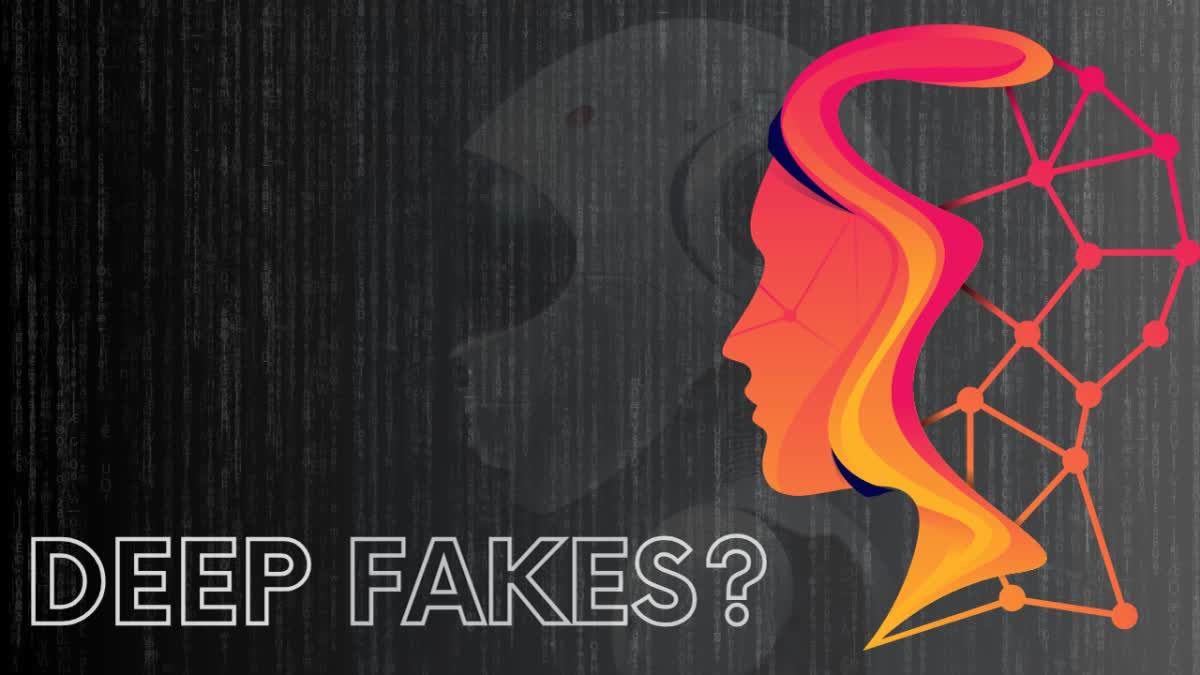New Delhi:Gulshan Rai, former National Cyber Security Coordinator, Government of India in an exclusive conversation with ETV Bharat said that there is a need for India to take up the issue of combating deepfake with the international community and come to a joint conclusion.
He noted that India and the European Union (EU) can work together to combat Artificial Intelligence (AI)-generated deepfake and content which will make the UN resolution on the promotion of safe, secure and trustworthy AI systems easier, which will also benefit sustainable development for all.
"India-EU data sense will make a complete system in finding a technological solution to deepfake issue. He further said that awareness and strengthening technology access is a must to combat deepfake issue," Rai added.
He was among the speakers at the two-day EU-India Track 1.5 Conference in New Delhi that kicked off on Tuesday. The conference saw the participation of experts, policymakers, academia and law enforcement officials from South Asia (India, Bangladesh, Maldives and Sri Lanka) and Europe, who are at the forefront in the fight against digital extremism.
The EU, in collaboration with organising partner Global Counter-Terrorism Council (GCTC) and with the Ministry of External Affairs as a strategic partner, is hosting a crucial regional conference on August 21-22, to discuss the current and emerging threats in online radicalisation and find ways to jointly counter the exploitation of online spaces by extremist and terrorist actors.
The conference aims to enhance counter-terrorism dialogues and regional partnerships, consistent with the EU's Indo-Pacific Strategy, which foresees a deeper and stronger engagement with partners who share common goals and face common challenges. Expected outcomes include exploring strategies to address the complex challenges posed by the intersection of technology and terrorism while identifying possible areas of collaboration between the EU, India and the wider region to counter violent extremism in the digital sphere.
India does not have specific laws or regulations that ban or regulate the use of deepfake technology. India has called for a global framework for the expansion of ethical AI tools. Existing laws such as Sections 67 and 67A of the Information Technology Act (2000) have provisions that may be applied to certain aspects of deep fakes, such as defamation and publishing explicit material. Section 500 of the Indian Penal Code (1860) provides punishment for defamation. The Digital Personal Data Protection Act provides some protection against the misuse of personal data. The Information Technology Rules, 2021, mandate the removal of content impersonating others and artificially morphed images within 36 hours. India has called for the need to develop a comprehensive legal framework specifically targeting deepfakes, considering the potential implications for privacy, social stability, national security, and democracy.
Notably in April 2021, the European Commission proposed the first EU regulatory framework for AI. It is a comprehensive legislative proposal introduced by the European Commission in April 2021. It aims to regulate AI across the EU to ensure that AI technologies are safe, trustworthy, and aligned with fundamental rights and values.
The Act is part of the broader European Strategy on Artificial Intelligence, which seeks to make Europe a global leader in AI while also safeguarding ethical standards. Its implications are global, as non-EU companies providing AI services in the EU will also need to comply with the regulations. The AI Act is part of the EU's broader strategy to create a digital single market and to ensure that AI technologies developed or deployed in Europe are aligned with European values and laws.
Meanwhile, at the regional conference in New Delhi today, EU Ambassador to India Herve Delphin emphasised the critical need for international collaboration in the fight against online terrorism. The discussions gravitated towards the pivotal role of digitalisation, AI and the future of India-EU relations in effectively addressing extremist content online.
